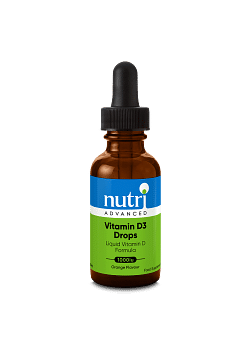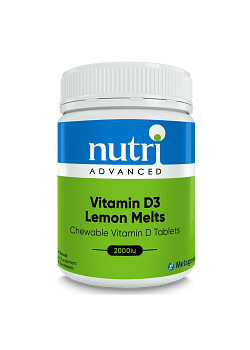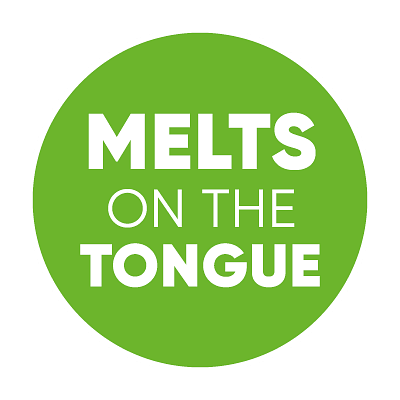Under 5s Should Supplement Vitamins A, C & D
Why you can trust Nutri Advanced Every article on our site is researched thoroughly by our team of highly qualified nutritionists. Find out more about our editorial process.
It may come as a surprise to some, but the Department of Health recommends that all children aged 6 months to 5 years should take a supplement containing vitamins A, C and D. This is not new advice as it has been recommended since the 1990s but it has recently emerged that only 30% of parents and carers have been offered advice on supplements by a health professional. Nutrients, such as vitamins and minerals, are best derived from food sources. However, children may not get enough of these, especially if they are not eating a balanced and varied diet. That’s when a supplement can come in quite handy.
A quick internet search will bring up a range of supplements targeted towards children, but it is important to realise that not all are created equally. A lot can contain added sugar or artificial sweeteners like sucralose which should be avoided. It is better to choose ones that are sweetened with fructose, which is a sugar naturally found in fruit; or polyols like sorbitol and xylitol which can help in preventing tooth decay. You should also choose one that is formulated specifically for children and provides good levels of the key vitamins A, C and D:
• Vitamin A helps maintain a healthy immune system, healthy vision and helps to keep skin healthy.
• Vitamin C helps with the immune system and can also help with the absorption of iron.
• Vitamin D helps to maintain healthy bones and also helps the immune system.
This advice is in addition to the advice Public Health England published last year that adults and children over the age of one should have 10 micrograms of vitamin D every day, especially during the Autumn and Winter when sunlight is scarce. This means that some people may want to consider taking a supplement as its difficult to get enough vitamin D from food alone. When choosing a vitamin D supplement, it is important to choose one that uses vitamin D3 (cholecalciferol) as this is the form naturally produced in the skin in response to sunlight. It’s also important to choose a formula that children can take easily such as liquids or ‘melting’ tablets, and look for products that contain no artificial sweeteners and only natural flavours.
The BBC also speaking on supplementation for Under 5s spoke to various health professionals about this. You can read their full article here.
This website and its content is copyright of Nutri Advanced ©. All rights reserved. See our terms & conditions for more detail.
Nutri Advanced has a thorough research process and for any references included, each source is scrutinised beforehand. We aim to use the highest value source where possible, referencing peer-reviewed journals and official guidelines in the first instance before alternatives. You can learn more about how we ensure our content is accurate at time of publication on our editorial policy.
Most Popular Articles
-
7 Surprising Ways To Support Your Magnesium
If you are displaying signs of a magnesium deficiency, here are 7 ways to boost your magnesium levels that are easy to incorporate into your daily life. -
5 Best Vitamin C Supplements Picked By Our Experts
Learn more about the different types of vitamin C, the different benefits you get from different types, and what you get for spending more on a good supplement. -
Top 5 Vitamins For Energy And Tiredness Picked By Our Experts
The 5 best and most important vitamins for energy & tiredness including B vitamin food sources & best supplement forms for energy. -
Benefits of Myo-Inositol for Polycystic Ovary Syndrome (PCOS)
In this research review article, we take a closer look at a lesser-known natural compound called myo-inositol that has been found to have significant potential to improve many of the prevalent features of PCOS. -
Top 10 Reasons to Give Your Kids Omega-3
Read the top 10 reasons that kids should have plenty of Omega-3- an essential fatty acid- including for depression, brain function, sleep & reading/maths skills.














